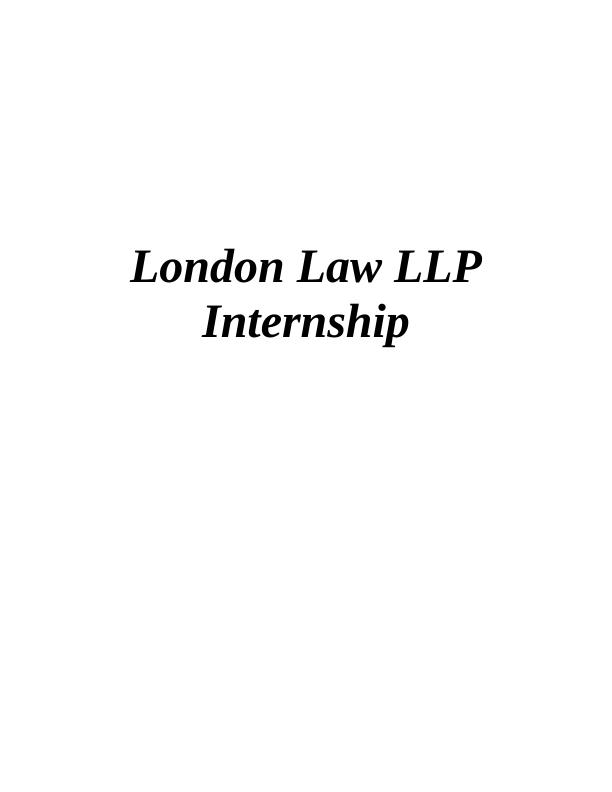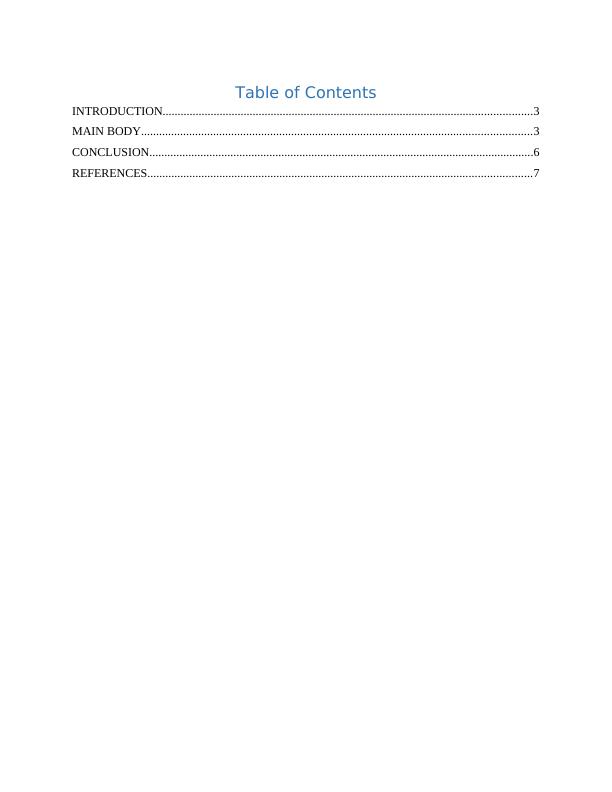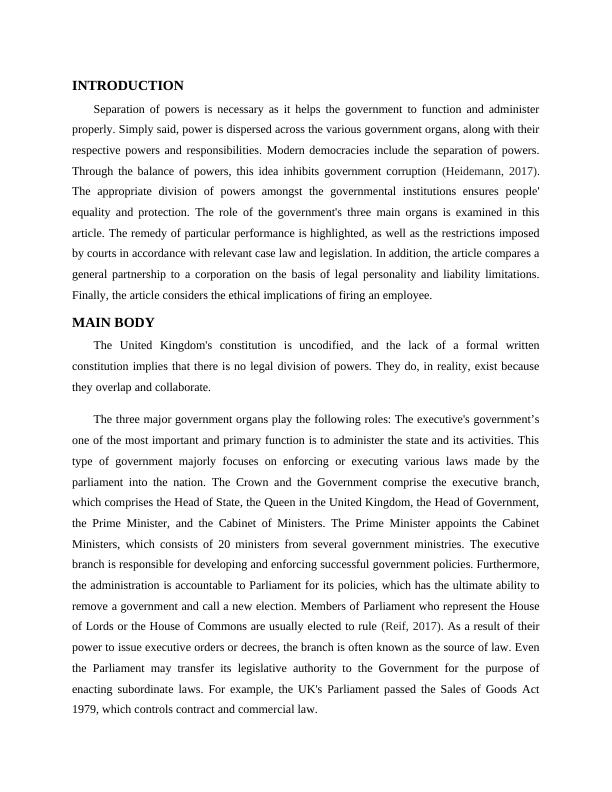Separation of Powers and the Functions of Government Organs
Added on 2022-11-24
7 Pages1705 Words228 Views
End of preview
Want to access all the pages? Upload your documents or become a member.
Separation of Powers in Public Law
|12
|3946
|134
Role of Three Main Organs of Government and Specific Performance Remedy
|7
|1904
|341
Legal Issues in Business: Understanding the English Legal System and Justice System
|8
|2517
|414
Assignment about Law and Ethics
|6
|1986
|13
The Separation of Powers in Malaysia's Politics & Government
|10
|2803
|409
Introduction to UK Law
|7
|1569
|34


